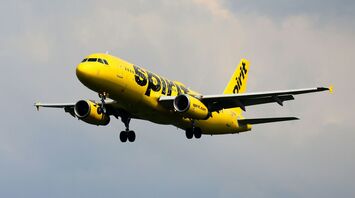The Uncertain Future of Low-Cost Air Travel in America

The US travel landscape faces a potential upheaval as Spirit Airlines, a major player in the low-cost air travel sector, teeters on the brink of instability. This month, a significant legal roadblock emerged when a federal court thwarted JetBlue Airways' ambitious $3.8 billion bid to acquire Spirit Airlines. The court cited concerns over antitrust laws, particularly the protection of competitive markets in the United States.
In the wake of the blocked deal, Spirit Airlines finds itself in a precarious position. Struggling financially and unable to fully recover from the pandemic's early impacts, Spirit's path forward appears increasingly uncertain without a merger or acquisition. The airline's potential bankruptcy could dramatically alter the low-cost travel scene nationwide.
Spirit Airlines, known for its predominantly domestic routes and a few short international ones, offers some of the lowest fares, making air travel accessible to low-income and budget-conscious flyers. The disappearance of Spirit would raise critical questions about the future of affordable airfare in the US.
According to CNBC's Kevin Williams, Spirit plays a crucial role for leisure travelers, students, and others seeking budget-friendly options. Its absence could significantly impact various markets, particularly in Florida, affecting both incoming tourists and local families seeking affordable Caribbean vacations.
Jase Ramsey, a professor at Florida Gulf Coast University, notes Spirit's importance as a go-to airline for family vacations in the region. The impact of Spirit's potential collapse would extend beyond large international airports, hitting smaller regional ones hard. For instance, Spirit is the sole commercial airline serving Arnold Palmer Regional Airport in Pennsylvania. Its loss would be a severe blow to such airports.
The fate of Spirit Airlines could influence other airlines and the overall pricing in the industry. The Chicago Tribune's editorial board points out that US airfares are market-driven, with prices dropping in routes where Spirit operates. A potential JetBlue/Spirit merger could introduce a new competitive element in the airline oligarchy.
However, Phillip Longman, writing for The Atlantic, argues that the issue with low-cost airlines isn't a lack of competition but the absence of sensible regulation to guide it. He suggests that airlines can provide better service when they have enough scale to offer seamless connectivity, often leading to natural monopolization in a less regulated environment.
Looking ahead, both JetBlue and Spirit are appealing the court's decision. Although they haven't outlined a legal strategy, they are determined to pursue the merger, envisioning the formation of the nation’s fifth-largest airline. Meanwhile, there's a silver lining for travelers: Kayak forecasts a 16% drop in domestic airfares in 2024, potentially making it an ideal year for budget-conscious travelers to explore the US.



















